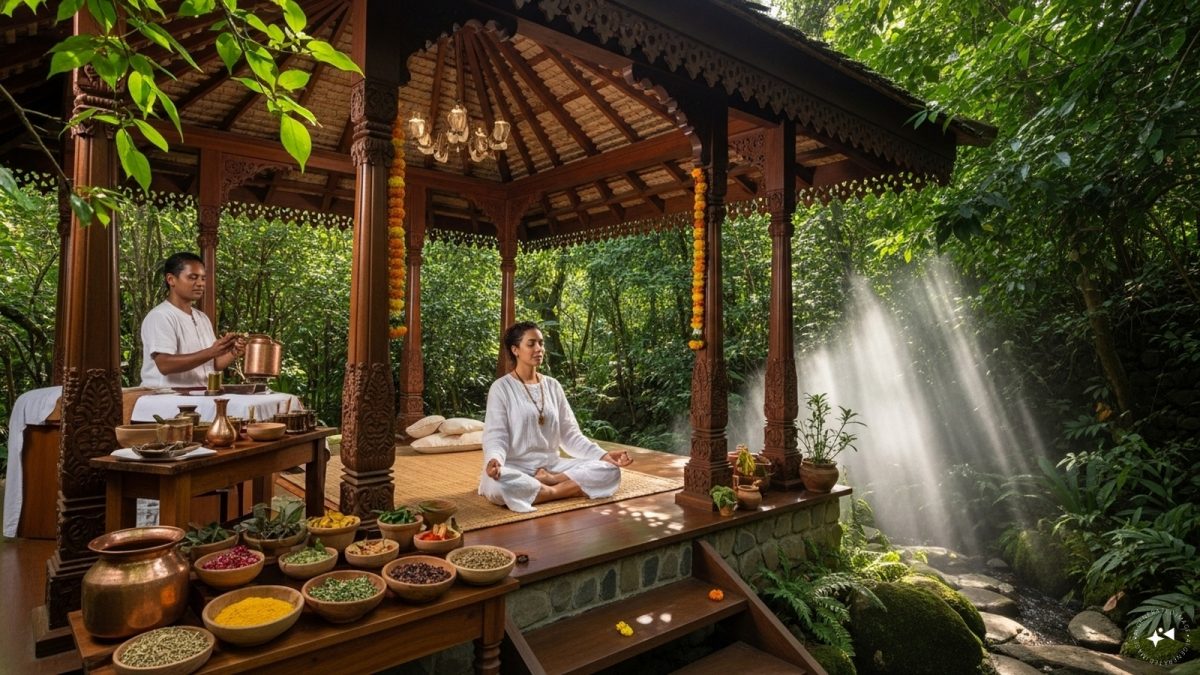Last Updated:
As modern travellers seek wellness tourism opportunities, India emerges as a hub for authentic, sustainable, and deeply enriching wellness journeys.

The wellness travel sector boosts sustainable tourism and encourages longer stays.
Around the world, wellness tourism is moving from a niche interest to a mainstream pursuit, as travellers increasingly seek experiences that nourish not just the body but also the mind and spirit. For India, this shift is more than an opportunity. It is an organic extension of its centuries-old traditions. With Ayurveda, yoga, meditation, and holistic healing deeply rooted in its culture, India holds a unique advantage in this fast-growing sector.
India’s Living Heritage
“Wellness and Ayurveda are no longer just a complementary travel experience, but a fast-growing sector in global tourism,” said Karan Agarwal, Director, Cox & Kings. “The global wellness tourism market is projected to surpass $1 trillion by 2030, and India has a natural advantage with its 5,000-year-old Ayurvedic tradition, rich yoga heritage, and deeply rooted holistic healing practices.” Ravi Gosain, President of the Indian Association of Tour Operators (IATO).
Unlike destinations that have adopted wellness as a trend, India offers authenticity. “India’s strength lies in the fact that Ayurveda and yoga are not manufactured experiences here. They are a way of life. This authenticity is what sets the country apart in a crowded global wellness market,” says
From Ayurvedic retreats in Kerala and yoga ashrams in Rishikesh to luxury wellness resorts spread across the country, travellers are invited into living traditions that have been practised and perfected over millennia.
Authenticity Meets Luxury
India’s true edge lies in the purity of its practices. “For those travelers who seek an actual authentic mind–body–soul experience, India gives them what cannot be delivered anywhere else: a living tradition for holistic well-being based on centuries of practice,” Gosain noted.
Ayurvedic therapies, Panchakarma detoxification, and herbal remedies are offered under the guidance of certified practitioners, while world-class wellness resorts ensure comfort and indulgence. This unique balance of authenticity and luxury creates experiences that are both transformative and restorative.
Sustainability and Longer Stays
Wellness travel also contributes to the sustainability of India’s tourism industry. As Gosain pointed out, such experiences often require longer stays: weeks of treatments, therapies, or programs, leading to repeat visits. “Most Ayurvedic and yoga retreats in India are consciously eco-friendly – whether it is through organic farming, use of natural building materials, or water conservation. This makes wellness tourism not just healing for the individual, but also restorative for the planet,” says Gosain.
India’s Global Spotlight
The Indian Ministry of Tourism has been actively promoting yoga and wellness under the Incredible India campaign, showcasing the country as a sanctuary for rejuvenation. “What the world seeks today is not just a vacation but a transformative and healing experience,” said Agarwal. “India’s edge lies in leveraging centuries-old knowledge with world-class hospitality to deliver well-being as a lived experience, not just a service.”
As global interest in holistic healing continues to rise, India’s unique heritage positions it as more than just a travel destination.
- Location :
Delhi, India, India








